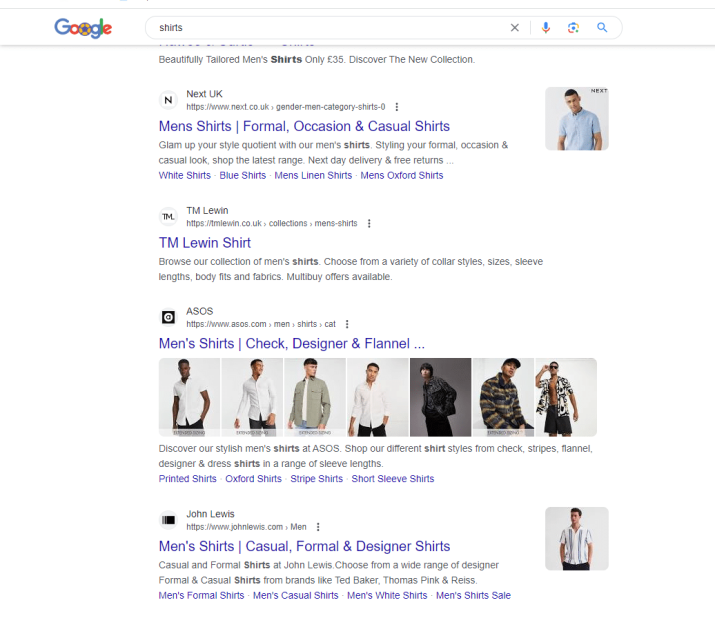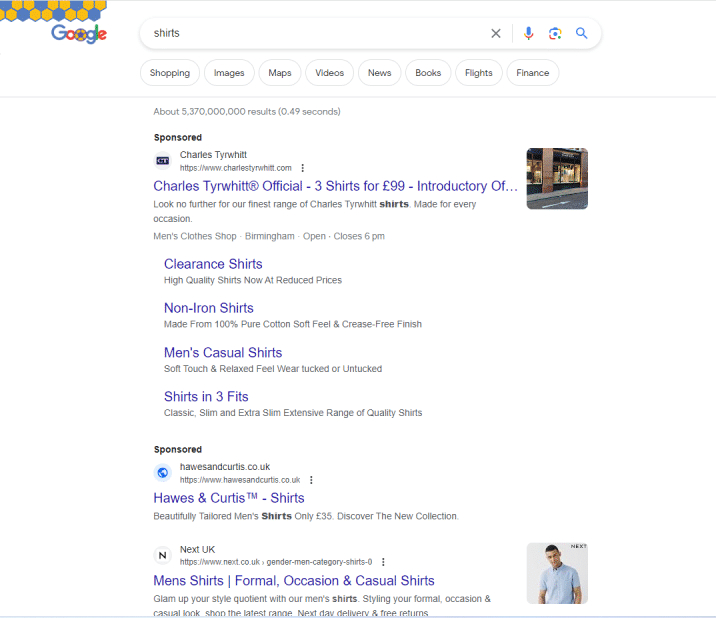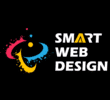SEO Vs PPC: Differences, Pros, Cons & Which to Choose?
Businesses of all sizes need an online presence in today’s digital world. Whether you’re a small local shop or a multinational corporation, being visible and easily discoverable online is a necessity in order to attract customers and generate leads. Pay-Per-Click (PPC) advertising and Search Engine Optimisation (SEO) are popular ways to boost online visibility. Both have their pros and cons, and in this article, we will discuss the differences between SEO and PPC, and which strategy might be best for your business.
What is SEO?
SEO, or Search Engine Optimisation, refers to the process of optimising your website and online content to improve its visibility in organic search results. Organic search results are the unpaid listings that appear on search engine result pages (SERPs). SEO involves various techniques, such as optimising your website’s structure and content, targeting relevant keywords, building high-quality backlinks, and improving user experience. The goal of SEO is to increase organic traffic and achieve higher rankings in search engine results. If you look at the search results below for “Shirts”, NEXT UK, TM Lewis, ASOS appear on the first page. This shows that these brands have customised SEO strategy to rank themselves for the “Shirts”.

PROS of SEO
One major advantage of SEO is the long-term benefits it provides. When you optimise your website and content, the effects can last for a long time, even if you stop actively working on it. Organic traffic is considered more trustworthy by users, and higher rankings in search results can lead to increased brand credibility and visibility. Moreover, SEO is cost-effective in the long run, as you don’t have to pay for clicks or ad placements.
Another advantage of SEO is its ability to improve the overall user experience of your website. When you optimise your website for SEO, you’re not just optimising for search engines, but also for your users. It includes improving the site’s speed, navigation, and mobile responsiveness. A well-optimised website can lead to higher engagement and lower bounce rates, ultimately improving user satisfaction and conversion rates.
CONS OF SEO:
1. Time-consuming: SEO is a long-term strategy that requires consistent effort over an extended period of time. It can take months or even years to see significant results, which means you need to be patient and dedicated to the process.
2. Constantly changing algorithms: Search engines like Google frequently update their algorithms to improve search results and combat spam. This means that SEO strategies that work today may not work tomorrow, requiring you to stay updated and adapt your tactics accordingly.
3. Competitive nature: SEO is a highly competitive field, especially for popular and lucrative keywords. It can be difficult to outrank established competitors who may have been investing in SEO for years. This can make it challenging to achieve and maintain high rankings.
4. Uncertain results: Despite your best efforts, there’s no guarantee that your SEO activities will result in high rankings and increased organic traffic. Factors like search engine algorithm changes, competition, or changes in user behavior can impact your SEO success.
5. Technical aspects: SEO involves a lot of technical elements, such as optimising website structure, improving site speed, and resolving technical issues. If you’re not technically inclined or don’t have the resources to invest in these aspects, it can be challenging to fully optimise your website for search engines.
What is PPC?
On the other hand, PPC, or Pay-Per-Click advertising, is a method of online advertising where advertisers pay a fee each time their ad is clicked. PPC ads are displayed on search engine result pages, as well as on various websites and social media platforms. Unlike SEO, which focuses on organic traffic, PPC allows businesses to appear at the top of search results instantly, by bidding for keywords and targeting specific demographics. Pay-per-click advertising is paid only when someone clicks on an ad, hence the name “pay-per-click.” You can differentiate the organic and paid result from the Sponsored tag. For the same “Shirt” enquiry, Charles Tyrwhitt ranked on the top but this was because they invested in PPC to get searched for Shirts.

PROS of PPC
PPC, on the other hand, provides instant results. With PPC ads, you can start driving traffic to your website and generating leads immediately. This can be particularly beneficial for new businesses or those with time-sensitive promotions. Furthermore, PPC offers more control over targeting and demographics, allowing you to reach a specific audience that is more likely to convert into customers. However, this immediate benefit comes at a cost, as you must pay for every click on your ad, and the costs can quickly add up if you’re not careful with your budgeting and targeting.
PPC, allows for more targeted advertising and can help you reach potential customers at the perfect moment. For example, if you’re a local restaurant, you can display your ads to people in your area who are searching for restaurants or are interested in a specific cuisine. This can greatly increase the chances of those people visiting your restaurant. Additionally, with PPC, you have the flexibility to test different ad copies, target keywords, and landing pages to optimise your campaigns and maximize conversions.
CONS OF PPC:
1. Cost: PPC ads can be expensive, especially if you are targeting competitive keywords. The cost of each click can quickly add up, and if you have a limited budget, it may not be sustainable in the long run.
2. Click Fraud: Click fraud is a major concern in PPC advertising. Some individuals or automated bots may click on your ads repeatedly, resulting in wasted clicks and increased costs. This can lead to a significant loss of budget without any genuine leads or conversions.
3. Limited Reach: PPC ads are displayed only on search engine result pages or specific websites that allow advertising. This limits the potential reach of your ads as compared to other marketing methods like social media or content marketing.
4. Ad Blindness: Many internet users have developed “ad blindness” and tend to ignore or overlook paid ads. This can reduce the effectiveness of your PPC campaigns and make it difficult to generate desired results.
5. Learning Curve: PPC advertising platforms like Google Ads require some level of expertise and ongoing optimisation to get the best results. If you are unfamiliar with the platform or fail to keep up with the latest trends and strategies, your campaigns may not perform as well as expected.
Conclusion
In conclusion, deciding between SEO and PPC depends on your business goals, budget, and timeline. While SEO provides long-term benefits and improved organic visibility, PPC offers instant results and more control over targeting and demographics. You don’t have to pick one over the other, but rather find the right balance between them. Many businesses find success by combining SEO techniques with PPC advertising to maximize their online visibility and generate leads. By focusing on organic SEO efforts to improve your website’s overall visibility and user experience, and complementing it with targeted PPC campaigns, you can create a well-rounded online marketing strategy that drives traffic to your website and increase conversions Ultimately, understanding the strengths and weaknesses of both SEO and PPC will help you make an informed decision and choose the strategy that best aligns with your business objectives. Whether you choose SEO, PPC, or a combination of both, remember that digital marketing is a dynamic field, and it’s important to continuously monitor and optimise your strategy to Maintain a competitive edge while achieving your business goals.
Overall, the debate between SEO and PPC is ongoing, and there is no definitive answer on which one is better. Each strategy has its own advantages and disadvantages, and the best approach will depend on your business goals, budget, and timeline. Some businesses may benefit more from the long-term, organic visibility of SEO, while others may find instant results and targeted advertising more appealing with PPC. In the end, it’s important to understand your target audience, analyze your competitors, evaluate your resources, and make an informed decision based on what will yield the best results for your business.
We at Smart Web Design hep you rank on Google and invest in the right PPC campaign that suit your business objectives. Get in touch today to unlock your true potential with Smart Web Design.
Get in touch with us today and start your digital journey with Smart Web Design.
Call: 0121 666 6534
Email: sales@e4k.co
Interested in discussing a project with us?
We’re always happy to discuss your project with you and put together a proposal
